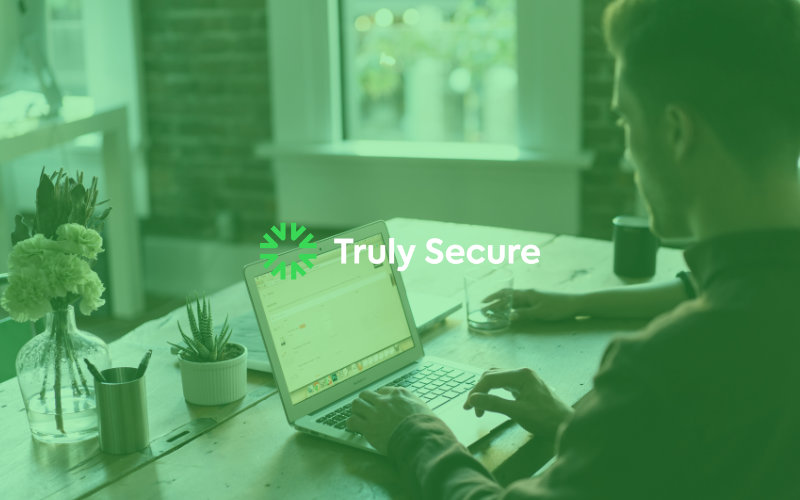The Covid-19 pandemic has seen a profound and irreversible shift in the way many of us work. Today, working remotely remains a highly popular and beneficial alternative to the office, but it hasn’t been without its challenges, particularly in terms of how IT support services are provided to remote workers.
In this blog, we will explore the ins and outs of managing IT support for remote workers so that you can ensure a seamless and productive remote work experience for all.
Embrace the Cloud
We’d be ignoring the elephant in the room if we did not mention the cloud! Embracing the cloud has become essential for today’s remote workers. Cloud technology provides the foundation for effective remote work today, here are some key benefits of embracing the cloud alongside how they reflect on remote IT support:
- Accessibility – Cloud-based solutions provide easy access to files, applications and data from anywhere with an internet connection. IT support should enable remote workers to be able to access the full suite of relevant files, applications and data that they need to fulfil their role, which can include managing access controls and setting up user accounts.
- Live Collaboration – Cloud storage platforms like Google Drive or Onedrive enable real time file sharing and collaboration among teams with remote workers. To avoid downtime and unreliable connection, IT support teams that are running a business’s own applications and servers should ensure these are configured to optimally support remote workers.
- Scalability – Cloud-based services can easily scale to meet the changing needs of remote teams compared to traditional services and setup activities for users. For remote working, IT support teams should align devices (whether BYOD or company-managed) with cloud services and company policies to ensure that they work harmoniously and securely together.
- Security – On the one hand, many cloud service providers make big investments in security to protect data being hosted on their platforms which can help cybersecurity. On the other hand, employee devices, login credentials and threats such as receiving phishing attempts outside of the office, showcase some of the continuing threats at play in cloud-enabled forms of working. IT support should take care to implement end-to-end solutions, and ensure cybersecurity measures are being applied and monitored consistently across all company networks and devices.
- Disaster Recovery – Cloud services often include disaster recovery options, allowing businesses to quickly recover data and systems in the event of a catastrophe. However, IT support teams should ensure that all data across all channels are backed up, that multiple backups are available in multiple places, and that disaster recovery procedures work by testing them regularly.
Overall, embracing the cloud empowers remote workers by providing easy access to essential tools, promoting collaboration, improving data security and streamlining IT support, but the need for tailoring these tools to be as efficient and secure as possible will remain a key focus for IT support teams.
Establish Clear Communication Channels
Effective remote communication will be important for managing IT support for remote workers. In lieu of in-person support, ensuring that emails, instant messaging, and video conferencing tools are leveraged in a way that ensures effective and prompt support will be crucial for fielding effective remote IT support. Implementing a service desk software can help you to track and resolve issues efficiently. We recommend regularly communicating IT support procedures, escalation paths and response time expectations to remote workers as well, which will provide awareness and alignment between your operational teams and your It support.
Prioritise Cybersecurity
Prioritising cybersecurity has become more important than ever. With the shift to remote operations, organisations face heightened vulnerability to cybersecurity threats, with many small businesses reporting more frequent and damaging online threat encounters. With compliance, legal and financial consequences for poor cybersecurity measures, ensuring robust protections are in place throughout an IT infrastructure can be a matter of life or death for a business.
One effective step is to bake best practices into your culture and systems, such as the use of strong passwords, two-factor authentication and virtual private networks (VPNs) to enhance the security of remote connections. Alongside this, regularly updating software and providing comprehensive cybersecurity training to remote workers is crucial in ensuring vigilance against phishing attempts and other cyber threats. By prioritising cybersecurity, organisations can mitigate risks and maintain a secure working environment with remote working capabilities.
Remote Access and VPN’s
For remote work, Virtual Private Networks (VPNs) can be a great solution for ensuring the secure access of company resources from home and on the go. VPNs create a secure connection between remote workers and your company’s network, safeguarding data transmission through the use of encryption.
A VPN works by routing a device’s internet connection through a private service rather than the user’s regular internet service provider (ISP). The VPN acts as a bridge between the user getting online and connecting to the internet by hiding their IP address, adding an extra level of security. Implementing remote access solutions ensures that employees can securely access files and systems while working remotely, minimising interruptions and enhancing productivity.
Provide Remote Troubleshooting Resources
Giving employees access to self-help resources that are organised into a knowledge-base can empower remote workers to get the best from their IT whilst operating away from the office.
We recommend creating a comprehensive knowledge base or FAQ resource that addresses common IT issues and their solutions in an accessible and visual way. With step-by-step guides, remote workers can resolve simple tech problems on their own, reducing their downtime and easing pressure on IT support staff.
Remote Device Management
Remote workers will often require mobile devices, particularly phones, to complete their work. Without safeguards and a level of monitoring, these can become access points for cyber threats but also, this can lead to uneven device and software updates across the organisation. You can implement Mobile Device Management (MDM) solutions to remotely monitor and manage company-provided devices. MDM enables IT teams to enforce security policies, deploy software updates, and troubleshoot device issues from a central location. In all, they ensure that remote devices are secure, up to date and compliant with company policies.
Virtual Team Support
Virtual team support can serve as a dedicated channel or resource specifically for remote workers in an organisation, proving to be a valuable resource for equipping remote workers to get the best from their work. It also goes beyond resolving technical issues, as remote team support can include virtual team building activities and chat groups. A dedicated virtual team support function can also tailor training, processes and services for remote workers, should there be a difference between how they access and use IT compared with office-based workers.
Encourage peer-to-peer assistance, where remote employees can share their knowledge and help one another with common tech challenges. Creating a supportive and collaborative environment is shown to enhance productivity, boost morale and make workers happier.
Conclusion
IT support for remote workers takes a proactive approach, a focus on cybersecurity, and effective communication channels that can deliver the prompt and effective support that remote workers need to operate seamlessly. By implementing these practices for your remote workers’ IT support, you can ensure a smooth and productive work experience for your remote workers. Remember, remote workers are here to stay, and adapting your IT support strategies accordingly will empower your remote workforce to thrive in the digital era.
Partner with Truly Secure for Reliable IT Support in Dubai
When it comes to securing your mobile and cloud-based solutions, partnering with a trusted IT support provider is crucial. That’s where Truly Secure comes in. With our expertise and experience in cybersecurity and IT support, we are the ideal partner to safeguard your digital assets and provide a seamless technology experience. If you are based in Dubai or across the UEA, contact us today to find out more!
Introducing Our Free Truly Start Managed Service
Get started with no-obligation cyber security coverage from Truly Secure. Our Truly Start managed service provides vulnerability scanning, cyberfit scoring for machines, hardware inventory management, and USB device controls, giving you basic insights and controls to protect your data and network – IT Support Dubai – Truly Secure


